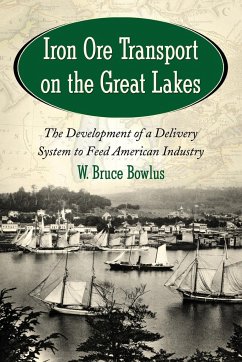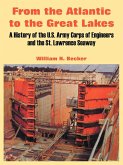The availability of inexpensive steel, so crucial to the United States' emergence as a leading industrial power in the late nineteenth century, relied upon the rise of an ore transport system on the Great Lakes that would feed American industry as a whole and come to alter the face of the region. This detailed history recounts innovations in shipping, the improvement of channels and harbors, the creation of locks, technical advances in loading and unloading equipment, and the ability to attract capital and government support to fund the various projects. When government support was lacking, reinterpretations of the Constitution were introduced to justify federal involvement. These changes, which often functioned symbiotically, represent one of the key untold stories in the spectacular rise of American industry.
Hinweis: Dieser Artikel kann nur an eine deutsche Lieferadresse ausgeliefert werden.
Hinweis: Dieser Artikel kann nur an eine deutsche Lieferadresse ausgeliefert werden.








